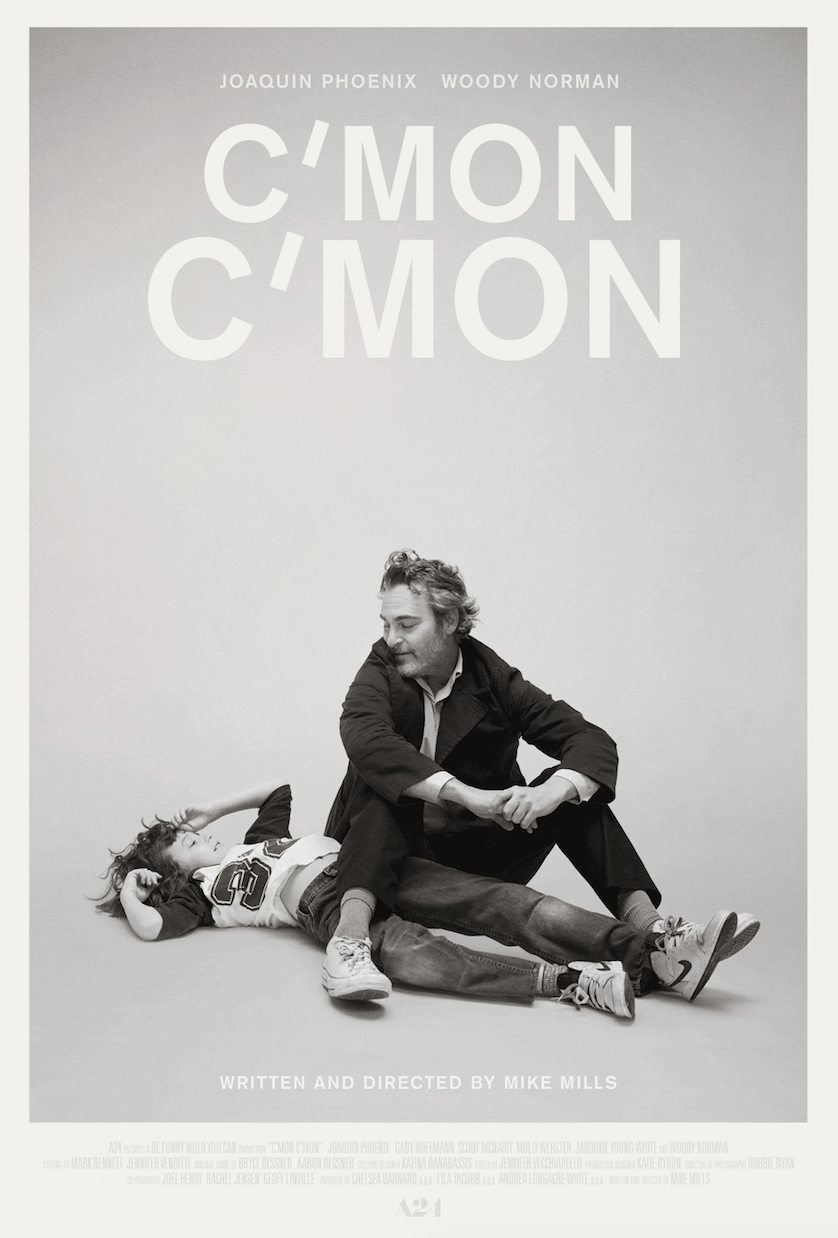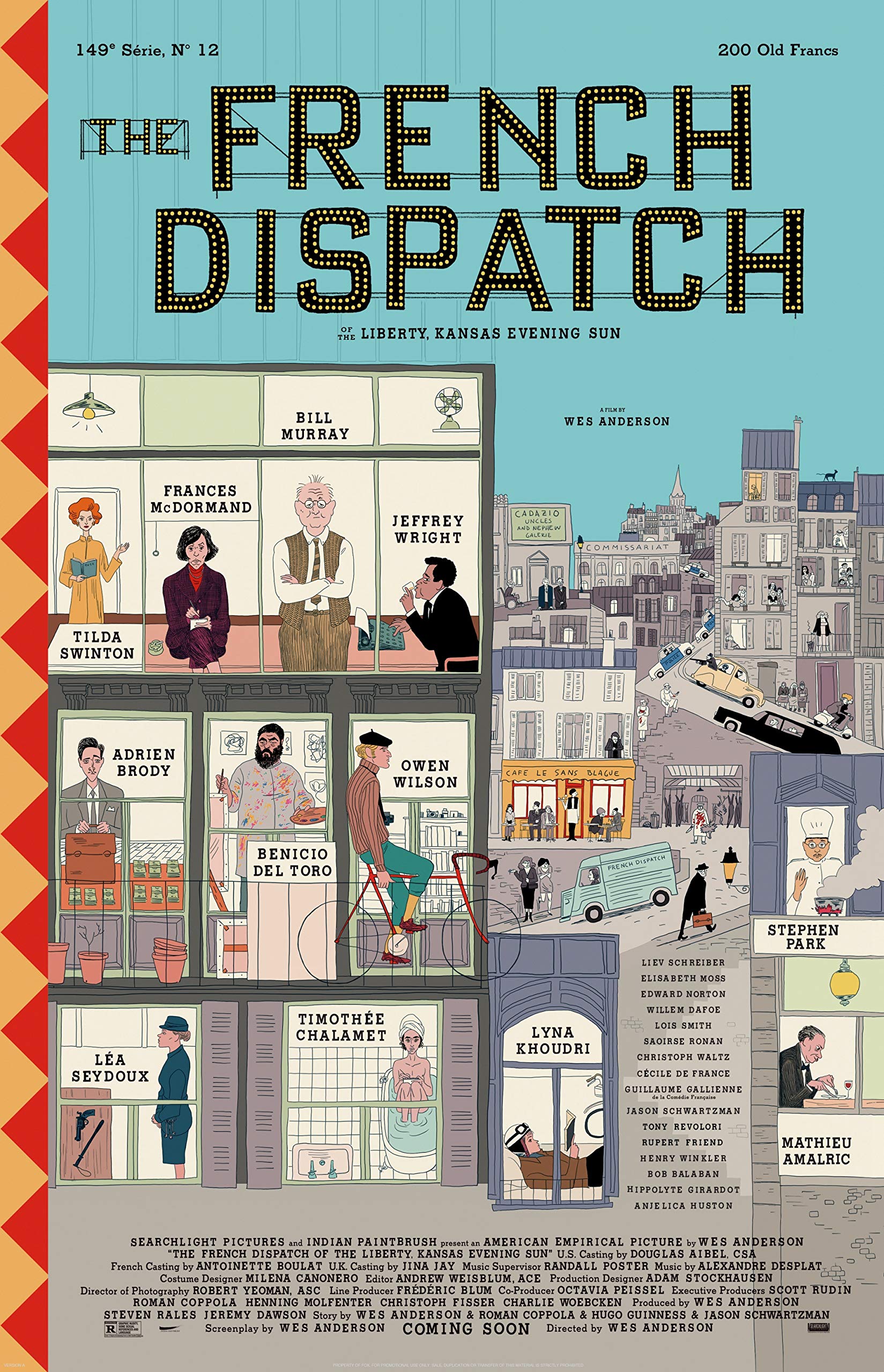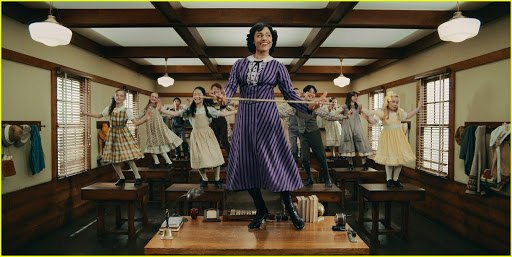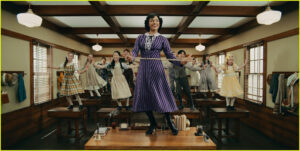C’mon C’mon
Posted on November 24, 2021 at 2:18 pm
A-| Lowest Recommended Age: | Middle School |
| MPAA Rating: | Rated R for language, graphic nudity, and some sexual references |
| Profanity: | Strong language |
| Alcohol/ Drugs: | None |
| Violence/ Scariness: | Family stress, sad offscreen death, mental illness of a parent |
| Diversity Issues: | None |
| Date Released to Theaters: | November 19, 2021 |
| Date Released to DVD: | April 11, 2022 |

Writer/director Mills based his previous films on his parents. Christopher Plummer won an Oscar for his role in “Beginners,” based on Mills’ father, who came out as gay late in life. Annette Bening’s role in “20th Century Women” was based on Mills’ mother. In both films, there were son characters based on Mills himself. “C’mon C’mon,” filmed in gorgeous black and white and even more gorgeous, capacious humanity, was inspired by Mills’ experience of being a father.
Joaquin Phoenix plays Johnny, a “This American Life”-ish radio producer who is traveling around the country interviewing kids and teenagers about their thoughts on their lives, what superpower they’d like to have, and what the future holds (the interviews in the film are unscripted, real responses from students). His sister Viv (Gaby Hoffman), from whom he has been a bit estranged since the death of their mother, needs him to care for her nine-year-old son, Jesse (Woody Norman), as she deals with a family emergency. Her ex-husband Paul (Scoot McNairy) is bi-polar and is having a breakdown. And so Johnny, something of a loner who is most comfortable talking to others in the formalized — and one-sided — setting of an interview,” unexpectedly becomes the sole guardian of a nine-year-old for a period that keeps getting extended.
Johny and Viv are constantly on the phone as he needs advice or she needs reassurance that Jesse is okay. Johnny tells her, with mock mansplaining, “You know, as a mother, you’re not gonna understand this, but working all day and taking care of a kid is just a lot.”
There are so many movies that could be made about this set-up, and I think we’ve seen most of them, from cheesy slapstick to cheesy sentimental. Mills has something far more subtle, meaningful, and insightful in mind. Phoenix, known for showboaty roles like his Oscar-winning Joker, gives a career-best performance here as Johnny, and Norman is a wonder as Jesse, making it impossible to believe he can be acting because his performance is unaffected, pure, and in the moment. It is astonishing to learn that not only is he not Jesse from California; he is not even American. He is British and lives in London. His chemistry with Phoenix is so natural we do not just feel they’ve known each other forever; we feel we’ve known them both forever. They are our family; they are us.
Jesse, too, separates himself from the world by processing it through Johnny’s microphone. And, as children do, he processes the unthinkably sad and scary abandonments of his mentally ill father and devoted but conflicted mother through play and sometimes through acting out. Jesse pretends he is an orphan. Johnny looks away for a second and Jesse disappears. They laugh. They get angry. They make mistakes and they apologize. And Johnny begins to understand that you cannot be right all the time with a child and the best you can do is to be completely present, completely open. In its way, that is what the best movies do, and this is one of them.
Parents should know that this film includes very strong language, a sad offscreen death, and mental illness of a parent.
Family discussion: What mistakes did Johnny and Jesse make? What did they learn from them?
If you like this, try: “Beginners,” “Where the Wild Things Are,” and “20th Century Women”









